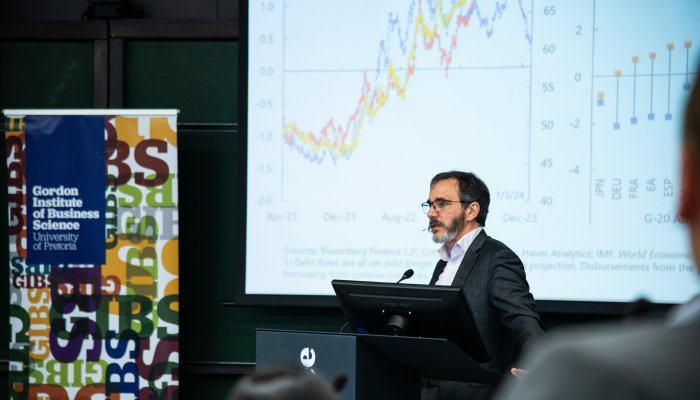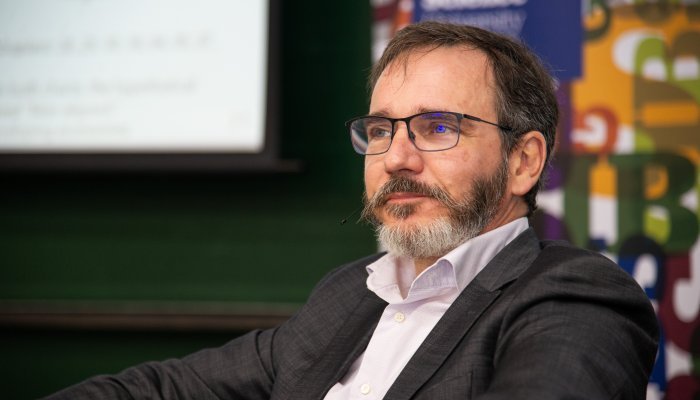A soft landing
“The global economy has dealt with significant shocks,” he said, and had remained resilient in the face of the challenges posed by sustained high energy prices and tight monetary policy.
Following the launch of the IMF’s World Economic Outlook Update (WEO), Gourinchas shared his insights on economic developments and risks, including growth and inflation, that the global economy is likely to encounter during 2024.
Measures to reinforce fiscal discipline will be increasingly important to rebuild buffers: “Many countries came out of the pandemic and the energy crisis with higher debt levels and interest rates, which are weighing on public finances.”
Countries, including South Africa, have not done enough to stabilise public debt levels. “That is a concern as that fiscal space is what makes economies less vulnerable to shocks, especially in emerging market economies,” Gourinchas said.
The IMF anticipates a soft landing for the global economy in 2024, with 3.1% projected growth, rising to 3.2% in 2025. A gradual decline of inflation to 5.8% in 2024 is expected, with a further continued decrease to 4.4% in 2025.
Risks on the horizon
The greatest risks to the global economy are what Gourinchas called “dark corners. We are most worried about the things that we don’t know exist. There will be shocks. That is the one thing we can be sure of.”
Historically, given the world economy has grown at an average of 3.8% between 2000 and 2019, the current projected global economic growth of 3.1% is “okay, but not great,” Gourinchas said. “We have to think of ways in which we can boost output growth in the coming years.”
Emerging market outlook
Emerging markets have been very resilient, with stronger-than-expected growth and stable external balances, partly due to improved monetary and fiscal frameworks and the decision of central banks to raise interest rates.
“Emerging market central banks were on the ball and responsive. That flexibility was important,” Gourinchas explained.
The South African Reserve Bank (SARB) was one of the institutions that responded “aggressively and timeously to inflation developments”. Inflation levels are now on their way to achieving the middle of the range of the Bank’s target.







